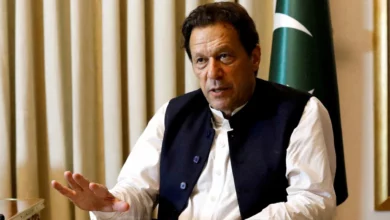Coming down from the high of revolutionary euphoria that hit the press over the past few days–including state-run papers, which endorsed the youth uprising in the final moments–more moderate reporting has returned.
The constitutional review committee set up by the Egyptian Armed Forces leads most papers this morning. State-run Al-Akhbar runs a concise story about the membership of the committee and its scope of work, which is to amend all necessary articles of the Constitution as it sees fit, as well as corresponding laws. The story also focused on the pledges Hussein Tantawy, head of the Supreme Council of the Armed Forces, made to the committee to lift the emergency law before the presidential and parliamentary elections, as well as his wish to turn over the country’s presidency to elected leaders and constitutional authorities.
With this coverage style, Al-Akhbar returns to its status as a mouthpiece of the presiding leadership, merely reporting on its activities and views.
Al-Ahram state-owned paper showcases the same editorial policy through the same story, with a touch of glorification. The story is the only one occupying the front page and its author is Osama al-Saraya, the editor-in-chief; the content and the headline–“No return to the situation prior to 25 January”–clearly cheers the army. Al-Saraya reports closely about the Supreme Council of the Armed Forces’ views without getting into the details of the constitutional committee. He writes about the council’s pledge to transfer power as soon as possible and its messages to protesters that they can call for the fall of a regime, but not the state and that this is not the right time for each group to voice demands. Al-Saraya also reports that the military believes people are in dire need of the return of security forces and that citizens should encourage policemen to do their jobs properly. Finally, he writes about the army’s concerns about the way toppled President Hosni Mubarak is mentioned. “The president let go of his authorities to save the country from a catastrophe… Our people would have killed each other, which would have put the Armed Forces in a crisis. The president’s resignation is something he should be thanked for, as well as his decision to stay in Egypt,” al-Saraya quotes army men as saying.
Al-Shorouk, a privately-owned daily, covers the same story, albeit with more insight and not much focus on relaying the discourse of the army. The author interviews a member of the constitutional committee, Hassan Badrawy, deputy head of the Supreme Constitutional Law, who says that their meeting with the Armed Forces showcased the latter’s lack of interest in staying in power for a long time. An unnamed source also tells Al-Shorouk that the committee probably won’t amend Article 2 of the Constitution, which stipulates that Islamic Sharia is a source of legislation, since changing the article would be controversial.
The other story that receives attention from all the papers is corruption cases. The privately-owned Al-Dostour leads with a story about the Public Funds Prosecutor beginning interrogations of former ministers over illegally acquired lands. Al-Akhbar reports the re-opening of the investigation into the Al-Salam 98 ship, which sank, killing tens of pilgrims on their way back from Saudi Arabia. The ship owner managed to flee the country through his ties with the ruling party. Meanwhile partisan paper Al-Wafd reports on investigations into the former Culture Minister over accusations of monument theft.
Al-Shorouk again demonstrates more insight rather than sporadically reporting about the multiple figures who will be interrogated on corruption cases. The headline of its story reads, “Accusations of corruption reach names that have long been far from the scope of suspicion.” The story cites an unnamed “sovereign source” as saying that the next days will reveal surprising names implicated in corruption cases, including members of the current cabinet under Prime Minister Ahmed Shafiq. The same source says investigators are primarily looking at inflated earnings or discrepancies in ministers' finances.
Commenting on both the constitutional committee and the corruption cases, columnist Amro Hamzawy proposes in Al-Shorouk that the army work on reforming the legal framework for forming political parties. He also proposes that the anti-corruption investigation frenzy should be conducted by specialized committees that include both prosecutors and civil society members who have long documented corruption cases and whose knowledge and expertise can be put into use. Hamzawy expresses concern that the conversations about reform have missed the need for clear mechanisms to guide institutions past the previous era of autocratic rule and corruption.




